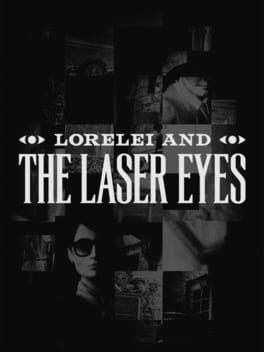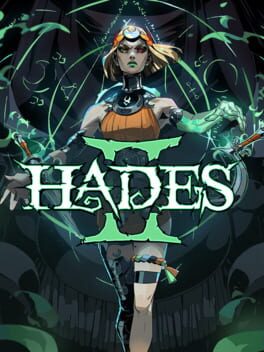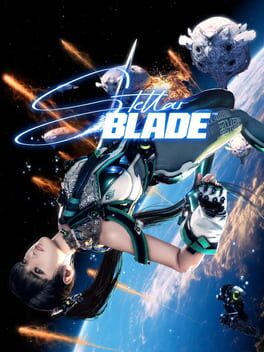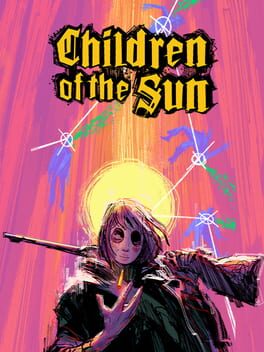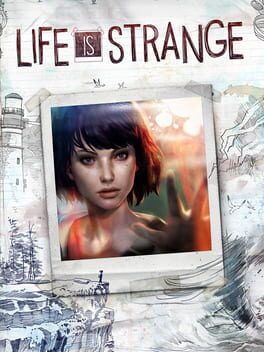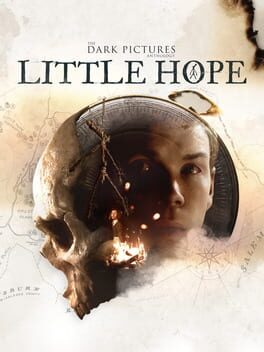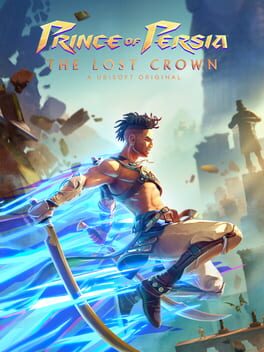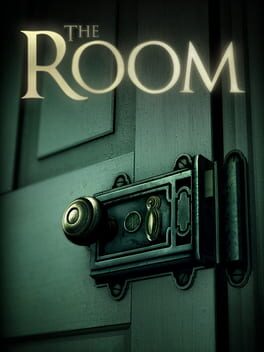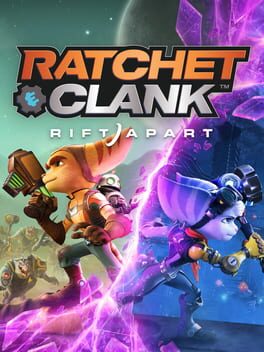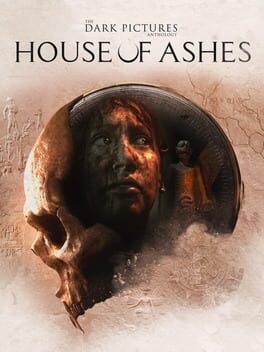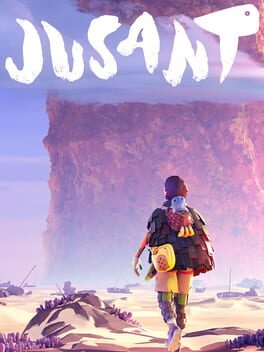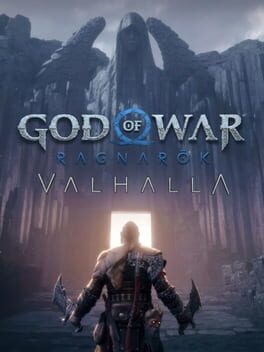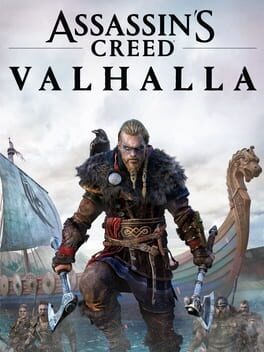Peter_K
Tremendous in its concept, execution and atmosphere. A puzzle game that combines open world-ish puzzle solving with the "open up paths" gameplay of something like Resident Evil 2 Remake leading to an absolute masterpiece.
Lorelei's genius comes from its structure: the Hotel & its surroundings are your play area for the entire game and are all interconnected. One of the first puzzles I encountered while playing the game was solved 12 hours deep as part of the ending sequence.
You'd think that this vast availability of options would lead to confusion as to which path can actually be taken, which solutions are possible based on current information, but it really doesn't because the game operates on the following principle: if you're looking at a puzzle and are confused about how it works, then you probably don't have the resources to solve it. Luckily, the game has so many avenues open that you can always jump to another question you have, slowly ticking off puzzles, opening doors and going further and further.
A real life notebook is required for this game. It took me 13 pages of notes to finish the game and that's with very conservative use of space. The in-game information menu is fantastic in its own right but cannot be accessed during puzzles and therefore only convenient for fixing your irl notes for the most part.
Aesthetically, the game rocks. Its art direction is gorgeous and so peculiar that it makes its most interesting pieces of imagery really pop. The music is fantastic as well.
Lorelei is definitely 2024's "off-radar" standout so far and continues a very, very strong indie release year along with Balatro, Pacific Drive and Animal Well.
8.7/10
Lorelei's genius comes from its structure: the Hotel & its surroundings are your play area for the entire game and are all interconnected. One of the first puzzles I encountered while playing the game was solved 12 hours deep as part of the ending sequence.
You'd think that this vast availability of options would lead to confusion as to which path can actually be taken, which solutions are possible based on current information, but it really doesn't because the game operates on the following principle: if you're looking at a puzzle and are confused about how it works, then you probably don't have the resources to solve it. Luckily, the game has so many avenues open that you can always jump to another question you have, slowly ticking off puzzles, opening doors and going further and further.
A real life notebook is required for this game. It took me 13 pages of notes to finish the game and that's with very conservative use of space. The in-game information menu is fantastic in its own right but cannot be accessed during puzzles and therefore only convenient for fixing your irl notes for the most part.
Aesthetically, the game rocks. Its art direction is gorgeous and so peculiar that it makes its most interesting pieces of imagery really pop. The music is fantastic as well.
Lorelei is definitely 2024's "off-radar" standout so far and continues a very, very strong indie release year along with Balatro, Pacific Drive and Animal Well.
8.7/10
2024
[ Review in progress - have played around 20 hours and gotten through a lot of the available content ]
As a huge fan of Hades 1 (150hrs + 100% achievements), I'm somewhat disappointed. I know boon balance changes haven't been made yet but I have certain issues with some core aspects of this game that I don't think are getting changed at all.
First off, arguably the biggest change here compared to Hades 1 is the magick system. A whole separate array of change moves that use mana are available for each weapon, and there's a lot of boons and hammers that relate to them. Sadly, these (to me) don't feel good at all to use. The few magick builds I've managed to make work feel so unfun that I always pivot to basic attack/special combos like in Hades 1.
Therein lies the issue. There are now so many moves that finding Boons or Hammers that work with your specific build feel rare. Just today I had a run where I didn't get offered a single Basic Attack boon until Area 3. Other times you'll get offered neverending Magick Vials and barely any Centaur Hearts, on a build that might not even want Magick.
It's the Elden Ring issue: when you have so much possibility for buildcraft, "random reward" is more often than not absolutely useless.
There's of course more issues, the nocturnal arms aren't as fun, the aspects don't feel even half as different as those of Hades 1, the sprint is not as fun as a second dodge, there's a frankly undignified amount of grinding required to get anything done (better now with the tool update but still), the "Hexes" (Calls) are pretty much all trash, the 3rd underground area is needlessly annoying to navigate etc. etc.
I hope this becomes better but for now it's just alright. If it didn't have the innate charm of Supergiant's games (writing, art direction, character designs) it would be unremarkable.
( Plus I'm confused about the playtesting situation at Supergiant. Did this game pass no in-house playtesting at all? If it did how did an issue like the insane grinding pre-Patch 1 pass that? )
As a huge fan of Hades 1 (150hrs + 100% achievements), I'm somewhat disappointed. I know boon balance changes haven't been made yet but I have certain issues with some core aspects of this game that I don't think are getting changed at all.
First off, arguably the biggest change here compared to Hades 1 is the magick system. A whole separate array of change moves that use mana are available for each weapon, and there's a lot of boons and hammers that relate to them. Sadly, these (to me) don't feel good at all to use. The few magick builds I've managed to make work feel so unfun that I always pivot to basic attack/special combos like in Hades 1.
Therein lies the issue. There are now so many moves that finding Boons or Hammers that work with your specific build feel rare. Just today I had a run where I didn't get offered a single Basic Attack boon until Area 3. Other times you'll get offered neverending Magick Vials and barely any Centaur Hearts, on a build that might not even want Magick.
It's the Elden Ring issue: when you have so much possibility for buildcraft, "random reward" is more often than not absolutely useless.
There's of course more issues, the nocturnal arms aren't as fun, the aspects don't feel even half as different as those of Hades 1, the sprint is not as fun as a second dodge, there's a frankly undignified amount of grinding required to get anything done (better now with the tool update but still), the "Hexes" (Calls) are pretty much all trash, the 3rd underground area is needlessly annoying to navigate etc. etc.
I hope this becomes better but for now it's just alright. If it didn't have the innate charm of Supergiant's games (writing, art direction, character designs) it would be unremarkable.
( Plus I'm confused about the playtesting situation at Supergiant. Did this game pass no in-house playtesting at all? If it did how did an issue like the insane grinding pre-Patch 1 pass that? )
2024
[ Reviewing this upon rolling credits after 5 hours - there's however still more secrets to find. ]
The first comparison that I drew after finishing Animal Well is to 2022's Tunic. Both are old-school, exploration focused adventures that have you constantly on a mental edge trying to figure out the mysteries of their insane worlds.
Though its striking artstyle might be the force of initial attraction, the world and puzzle design is the reason to stay. The world is built to not waste your time, and none of the puzzles require La Mulana-type divination making the entire journey a very effective process of trial and error.
The tools given to you (especially the second one) are incredibly versatile and can be used in a number of ways. There's more than one occasion where I used a combination of the items provided and some strange platforming maneuvre to find an alternate solution for getting to a location. That process doesn't feel like cheating, it feels like it's part of the game, part of the exploration.
Trying to review this game is quite difficult, as so much of what makes it special is its design, atmosphere and moment-to-moment design. It's my favorite (Balatro aside) game of the year so far.
8.5/10
The first comparison that I drew after finishing Animal Well is to 2022's Tunic. Both are old-school, exploration focused adventures that have you constantly on a mental edge trying to figure out the mysteries of their insane worlds.
Though its striking artstyle might be the force of initial attraction, the world and puzzle design is the reason to stay. The world is built to not waste your time, and none of the puzzles require La Mulana-type divination making the entire journey a very effective process of trial and error.
The tools given to you (especially the second one) are incredibly versatile and can be used in a number of ways. There's more than one occasion where I used a combination of the items provided and some strange platforming maneuvre to find an alternate solution for getting to a location. That process doesn't feel like cheating, it feels like it's part of the game, part of the exploration.
Trying to review this game is quite difficult, as so much of what makes it special is its design, atmosphere and moment-to-moment design. It's my favorite (Balatro aside) game of the year so far.
8.5/10
2024
I'm slightly torn. On the one hand, some of the best action game combat I've seen period, maybe only behind DmC 5, with some stellar (hah) bosses in the second half. On the other hand, a really forgettable, very badly written story accompanied by stilted voice work that really brings down the experience and often some boring art design.
I'd probably say this is overall on par with Jedi Survivor from last year, with Stellar Blade having much better combat and Jedi Survivor having a much more enjoyable story.
That being said, with Lies of P last year and this now, Korean development teams are on an absolute winning streak. Very eagerly anticipating ShiftUp's next crack at an action game.
Despite my complaints I can't deny I had an absolute blast getting through this,
7.8/10
I'd probably say this is overall on par with Jedi Survivor from last year, with Stellar Blade having much better combat and Jedi Survivor having a much more enjoyable story.
That being said, with Lies of P last year and this now, Korean development teams are on an absolute winning streak. Very eagerly anticipating ShiftUp's next crack at an action game.
Despite my complaints I can't deny I had an absolute blast getting through this,
7.8/10
2024
Children of the Sun is another in the “unorthodox puzzler” genre, but it’s probably the one with the coolest design and style. It reminds me a lot of Sayonara Wild Hearts in many ways, an incredibly fun and cool central mechanic that evolves in a decent way over 2-3 hours.
Flying the bullet with all its powers is as fun the first minute as it is the last, and the level design is good enough to keep you interested. That said, it’s a bit shorter than it maybe should have been and the story surrounding it is not as impactful, as it hasn’t been given room to breathe.
Flying the bullet with all its powers is as fun the first minute as it is the last, and the level design is good enough to keep you interested. That said, it’s a bit shorter than it maybe should have been and the story surrounding it is not as impactful, as it hasn’t been given room to breathe.
2015
It’s very hard to rate this game, because never before have I seen a game with so many glaring flaws that I however end up really liking anyway.
Life is Strange, conceptually, is kind of brilliant. It’s time manipulation mixed with coming-of-age in such an interesting way that I think it genuinely might be the most interesting form of time travel I’ve ever seen. Its ending (at least the one that I consider canon for my story) is also a fantastic conclusion.
However, I have to admit it is really not well written. Like at all. Moment-to-moment dialogue is kind of a mess and while it gets better in the mushier, more emotional story beats having badly written dialogue in such a game really destroys the experience. Additionally, a lot of what you’re actually doing in the game is a chore. Going around clicking on things doesn’t even give you exposition, just a matter-of-fact “Here is the thing”, and that’s how most of the dialogue in this game is. No subtlety, no subtext.
But alas, I still liked this one. Maybe more than I should have. I’m giving it a lot of points for the concept and how well it emotionally captured me (because it did), plus how decisions actually affect some outcomes in a more significant way than other games of this genre tend to. With better writing, this could have genuinely been a masterpiece.
Life is Strange, conceptually, is kind of brilliant. It’s time manipulation mixed with coming-of-age in such an interesting way that I think it genuinely might be the most interesting form of time travel I’ve ever seen. Its ending (at least the one that I consider canon for my story) is also a fantastic conclusion.
However, I have to admit it is really not well written. Like at all. Moment-to-moment dialogue is kind of a mess and while it gets better in the mushier, more emotional story beats having badly written dialogue in such a game really destroys the experience. Additionally, a lot of what you’re actually doing in the game is a chore. Going around clicking on things doesn’t even give you exposition, just a matter-of-fact “Here is the thing”, and that’s how most of the dialogue in this game is. No subtlety, no subtext.
But alas, I still liked this one. Maybe more than I should have. I’m giving it a lot of points for the concept and how well it emotionally captured me (because it did), plus how decisions actually affect some outcomes in a more significant way than other games of this genre tend to. With better writing, this could have genuinely been a masterpiece.
While Little Hope explores arguably the most interesting concept that Supermassive have ever thought of, it manages to do so with such a blandness and lack of finesse that it actually made me angry.
The story and its conclusion are terrible. The characters make constant baffling decisions over which you have no control and the conditions for saving them are awful and unclear.
This is a 2/10 and both of these points are for the concept, which still seems interesting conceptually despite the game's constant attempts to ruin it.
The story and its conclusion are terrible. The characters make constant baffling decisions over which you have no control and the conditions for saving them are awful and unclear.
This is a 2/10 and both of these points are for the concept, which still seems interesting conceptually despite the game's constant attempts to ruin it.
My enthusiasm might fade over time, but right now I feel like The Lost Crown is one of the best games Ubisoft has ever released, and a fantastic metroidvania combining the lessons learned from the past 6 or so years of the genre's reignition.
This game's biggest strength is its movement and combat. Sargon is so fluid and controls so well that even minor grievances about some of the platforming segments are inconsequential. At the same time, the movement abilities acquired double as combat abilities, some in absolutely genius ways. Art direction is on point, music is fantastic (as expected from Gareth Coker) and there's enough build variety to justify experimentation.
My only real complaint comes from the difficulty, or rather lack thereof. The boss roster is visually and mechanically quite good, but there were only a couple bosses that I found genuinely difficult, most going down in one or two attempts.
That being said, wow, what a start to 2024. The Lost Crown is excellent and an absolute must-play for metroidvania fans.
8.2/10
This game's biggest strength is its movement and combat. Sargon is so fluid and controls so well that even minor grievances about some of the platforming segments are inconsequential. At the same time, the movement abilities acquired double as combat abilities, some in absolutely genius ways. Art direction is on point, music is fantastic (as expected from Gareth Coker) and there's enough build variety to justify experimentation.
My only real complaint comes from the difficulty, or rather lack thereof. The boss roster is visually and mechanically quite good, but there were only a couple bosses that I found genuinely difficult, most going down in one or two attempts.
That being said, wow, what a start to 2024. The Lost Crown is excellent and an absolute must-play for metroidvania fans.
8.2/10
2012
I loved Journey a lot more than I thought I would. It's a very touching short experience that takes you on a genuine quest of discovery.
The most genius part of the game however is the multiplayer integration. The travelers you meet in your journey, combined with the purely visual aspect of its storytelling, makes for such incredible emergent gameplay and gets you tied to people just from the hardships endured together.
Given its length, this is an easy recommend to anyone who has access to it. You won't be disappointed.
8/10
The most genius part of the game however is the multiplayer integration. The travelers you meet in your journey, combined with the purely visual aspect of its storytelling, makes for such incredible emergent gameplay and gets you tied to people just from the hardships endured together.
Given its length, this is an easy recommend to anyone who has access to it. You won't be disappointed.
8/10
2012
A classic indie puzzle game and a pretty good one at that. The Room is short, but it's absolutely non-stop, trimming all the fat that many puzzle games fall victim to and getting you solving without break.
The "'puzzle box" theme of the game is a really cool idea, and the controls (making you turn and drag everything yourself) truly makes you feel like you're physically there working it yourself.
Will definitely try the following games
7/10
The "'puzzle box" theme of the game is a really cool idea, and the controls (making you turn and drag everything yourself) truly makes you feel like you're physically there working it yourself.
Will definitely try the following games
7/10
Rift Apart is colorful, fast and a lot of fun. The story and characters are enjoyable and it feels quite good to play (the Hover boots especially), with the (frequent) action set pieces being quite varied and creative.
Unfortunately, I feel like it strangely kind of gets stagnant after a while. The weapon upgrade system is really good and the variety of your armory is insane, but enemy & boss variety are abysimal which makes a lot of combat encounters feel samey and sluggish.
The action is also semi-frequently interrupted by either Glitch puzzles, or Clank's proto-HUMANITY sphere puzzles which while not terribly long, screech the pacing to a halt enough where it gets irritating.
Overall, it's fun, but nothing to write home about.
7/10
Unfortunately, I feel like it strangely kind of gets stagnant after a while. The weapon upgrade system is really good and the variety of your armory is insane, but enemy & boss variety are abysimal which makes a lot of combat encounters feel samey and sluggish.
The action is also semi-frequently interrupted by either Glitch puzzles, or Clank's proto-HUMANITY sphere puzzles which while not terribly long, screech the pacing to a halt enough where it gets irritating.
Overall, it's fun, but nothing to write home about.
7/10
After a terrible Man of Medan and disappointing Little Hope, House of Ashes finally hits. The characters all work. The dynamics between them are interesting. The threat is interesting and the decisions taken in the story feel more important.
Setting the game during a war and having the group be composed of characters from both sides was quite smart and did a lot to amplify the intercharacter relationships. The antagonistic force is also much more intriguing with a cooler mythology behind it.
Playing this with a friend was a great experience. Yeah this is not very well written and the decisions aren't actually that impactful, I'm sure it would be worse on a repeat playthrough, but this is the best in the anthology by a mile and some of the most fun I've had playing co-op with a friend and making decisions together.
7.3/10
Setting the game during a war and having the group be composed of characters from both sides was quite smart and did a lot to amplify the intercharacter relationships. The antagonistic force is also much more intriguing with a cooler mythology behind it.
Playing this with a friend was a great experience. Yeah this is not very well written and the decisions aren't actually that impactful, I'm sure it would be worse on a repeat playthrough, but this is the best in the anthology by a mile and some of the most fun I've had playing co-op with a friend and making decisions together.
7.3/10
2023
Jusant perfects the boring climb mechanics that every other game seems to have nowadays by making it a tactical and methodical process. While never too difficult, climbs in Jusant are like small puzzles, challenging you to use as much of your toolkit as is necessary to beat a gap or reach a handhold.
It gets there by applying the most important principle of puzzle games: short time between solution and execution. Figuring out which tool will get you where is the name of the game in Jusant, and after having done that the time to execute your maneuver is quite short.
Brilliant bits of climbing are masterfully intermingled with moments of respite, reading up on the lore and discovering more and more about the civilization in ruins that you're exploring.
Those aside, the style of the game is stellar, art direction always varied enough chapter-to-chapter to keep you interested while simultaneously keeping an internal aesthetic cohesion that prevents the locales from feeling disinjointed.
Jusant really is fantastic, and with its availability through gamepass and short (4h) length, it's a must play for 2023.
8/10
It gets there by applying the most important principle of puzzle games: short time between solution and execution. Figuring out which tool will get you where is the name of the game in Jusant, and after having done that the time to execute your maneuver is quite short.
Brilliant bits of climbing are masterfully intermingled with moments of respite, reading up on the lore and discovering more and more about the civilization in ruins that you're exploring.
Those aside, the style of the game is stellar, art direction always varied enough chapter-to-chapter to keep you interested while simultaneously keeping an internal aesthetic cohesion that prevents the locales from feeling disinjointed.
Jusant really is fantastic, and with its availability through gamepass and short (4h) length, it's a must play for 2023.
8/10
Wasn't a fan of the base game at all, but Valhalla is a wonderfully crafted combat centric experience and a nice epilogue to the nu-GoW story. It's a very accessible roguelike mode that makes Kratos face his past in a way the new games hadn't shown before.
Issues exist, obviously, and many carry over verbatim from the main game. The camera is still wonky, dialogue is still a bit too quippy and some encounters last way too long. However, this is still worth a play if you're invested in the story or just enjoy GoW combat.
Issues exist, obviously, and many carry over verbatim from the main game. The camera is still wonky, dialogue is still a bit too quippy and some encounters last way too long. However, this is still worth a play if you're invested in the story or just enjoy GoW combat.
An absolutely endless game with little to no substance. Every aspect of the game is bland and undercooked, from movement to combat to story.
Of course, all of this is widely known so instead of wasting time naming all the things this game does poorly, I'd like to mention a couple things I liked:
• 1) The Vinland section is quite nice. It's one of the best "take the main character's gear away" sections I've ever seen and serves an actual narrative and gameplay purpose.
• 2) The "world events" you can randomly run into are quite well done and something I'd like to see in open world games moving forward. It's basically side content that serves to flesh out the world and that you can complete in a few minutes without the tedium of standard fetch quests (see:FF16).
• 3) The usual complaint of annoying Ubisoft map markers, while still very much a problem here, is tempered by the way markers are split into 3 "colors" instead of showing a million icons. That makes engaging with the open world content a bit easier and more targeted, since you know what kind of activity you're heading towards instead of an empty question mark.
• 4) As per usual with AC games, the map itself is well designed and pretty to look at.
Despite some positives, Valhalla ends up a painfully average Ubisoft experience with barely any memorable aspects.
5/10
Of course, all of this is widely known so instead of wasting time naming all the things this game does poorly, I'd like to mention a couple things I liked:
• 1) The Vinland section is quite nice. It's one of the best "take the main character's gear away" sections I've ever seen and serves an actual narrative and gameplay purpose.
• 2) The "world events" you can randomly run into are quite well done and something I'd like to see in open world games moving forward. It's basically side content that serves to flesh out the world and that you can complete in a few minutes without the tedium of standard fetch quests (see:FF16).
• 3) The usual complaint of annoying Ubisoft map markers, while still very much a problem here, is tempered by the way markers are split into 3 "colors" instead of showing a million icons. That makes engaging with the open world content a bit easier and more targeted, since you know what kind of activity you're heading towards instead of an empty question mark.
• 4) As per usual with AC games, the map itself is well designed and pretty to look at.
Despite some positives, Valhalla ends up a painfully average Ubisoft experience with barely any memorable aspects.
5/10
